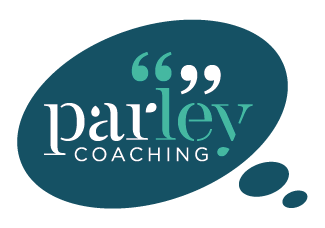 I listened to an interview with the great Seth Godin at the weekend and he circled around the sunk cost fallacy while talking about his new book, “The Practice”. It made me return to Kahneman’s “Thinking, Fast and Slow”, a book I last picked up so long ago that a business card fell out of it from my Travers Smith days – before Parley, before Ropes. Both Godin and Kahneman made me reflect on the relevance of the fallacy to coaching.
I listened to an interview with the great Seth Godin at the weekend and he circled around the sunk cost fallacy while talking about his new book, “The Practice”. It made me return to Kahneman’s “Thinking, Fast and Slow”, a book I last picked up so long ago that a business card fell out of it from my Travers Smith days – before Parley, before Ropes. Both Godin and Kahneman made me reflect on the relevance of the fallacy to coaching.
I will argue that we are regularly influenced by sunk cost.
I will conclude that bad coaching can add to this whilst good coaching can help.
What is the sunk cost fallacy?
Imagine you have booked and paid for an expensive holiday to the Maldives to celebrate a special birthday. Then covid arrives. The only way of getting to the Maldives is a costly and lengthy flight via Shanghai. There will be a 7 day quarantine on returning home. Assume the holiday cost is non-refundable. How likely are you to decide to go to the Maldives?
Now imagine that you had won the exact same holiday at a charity dinner.
The sunk cost fallacy highlights the fact that most people would fight a lot harder to get to the Maldives if they had paid for it. Kahneman writes about artificial debit and credit mental balances on such individual decisions. In the above example, it would be common to think you are “down” if you have paid for the holiday. Even though the decision we are reviewing in the here and now should logically be based on the future utility (your likely enjoyment of holiday balanced against the cost, lengthy flight and quarantine of making it happen) and the logic should not change between the “won” holiday and the paid for holiday. Because the payment is a sunk cost. Godin describes this sunk cost as like a gift from your former self, so just like any other gift.
The impact of the sunk cost fallacy on leaders?
The reaction of many leaders to this fallacy may determine how successful their leadership will be. If there is ever a time when fundamentals have changed and decisions need reassessment, this is surely it. The logic that justified the investments of time and capital made pre-2020 should not be hard-wired into the decision making of the future.
Leaders will need to be vigilant and realistic. Why are so many leaders suddenly the wrong person to lead after significant events – in part because they will not let go of the past they helped to build. Leaders who made investment in the past are less likely to hold that investment lightly in the future when circumstance might have changed.
On an individual level, this is perhaps most obviously relevant to a decision about change. How often do we talk ourselves out of change because we have worked so damn hard to get to where we have got to? Sunk cost.
Relevance to coaching
The sunk cost fallacy is not central to every mistake we make. However, it is lurking in many of our shadows.
Coaching has a connectedness to the fallacy because coaching will often revolve around change – an individual’s conscious determination to change. Not necessarily to change job or career, more often to change a leadership approach, to develop away from old practices.
Coaching should help build a person’s awareness. When I coach, the awareness part of the process is paramount. Awareness of your strengths (why you’re here, the opportunity this affords). Awareness of what might have held you back (and where you could be if you are able to change the story). Awareness of your situation (what is helping me and holding me back in the environment in which I work).
Bad coaching can leave an individual with a lot of awareness of the past and insufficient support to escape. This can make matters worse. An individual can then fixate on the emotional sunk cost and decisions about the future remain decisions dripping with the past.
Great coaching dwells on the emotion that shines through in building awareness but helps join the dots to a desired future. A coach will listen, reflect back (for example, “Is it interesting that your eyes lit up when you talked about X?”) and sometimes challenge (“Is it helpful that you always come back to Y when we start to talk about the future?”). A great coach will build awareness of emotion and then unleash excitement about the future. About change.
One of the things a coach will look out for is sunk cost. We encourage reflection on the past to enhance our choices about the future. We may dwell on areas of the past where emotion reveals what the coachee may be finding it hard to leave behind – like they have made an investment in something, often something that they believe hasn’t gone their way, where they still feel in debt. Sunk cost.
There is absolutely nothing wrong with having emotion around sunk cost. That makes us human. We all have regrets, don’t we? We all have things from our past which we hang onto, even when these things cease to be relevant to the future we want. The trick in building awareness is to shine the spotlight, possibly even celebrate these things because they are part of us, and then move on, less burdened. Treat them like a gift from your former self, as Godin would say. And then create a story that is not based on an illusion of already being in debt before you have started.
If you do this successfully it can help you embrace change more easily.
It can help you transition to leadership roles from management roles (where you are saying goodbye to sunk cost investments that you have made).
It can help you think about the possibilities more than the hindrances.
Back to the Maldives holiday – I am not arguing that the emotional kickback to having to give up your paid for holiday isn’t greater. Of course it is. But it is the kind of emotional kickback that doesn’t last long and shouldn’t stop you making the right decision. Don’t let what you have “invested” in the past be the barometer by which you make decisions about your better future. Reflect on the relevance of the past. Celebrate it. Use it where it strengthens you. Move on, if you can, where it doesn’t.
